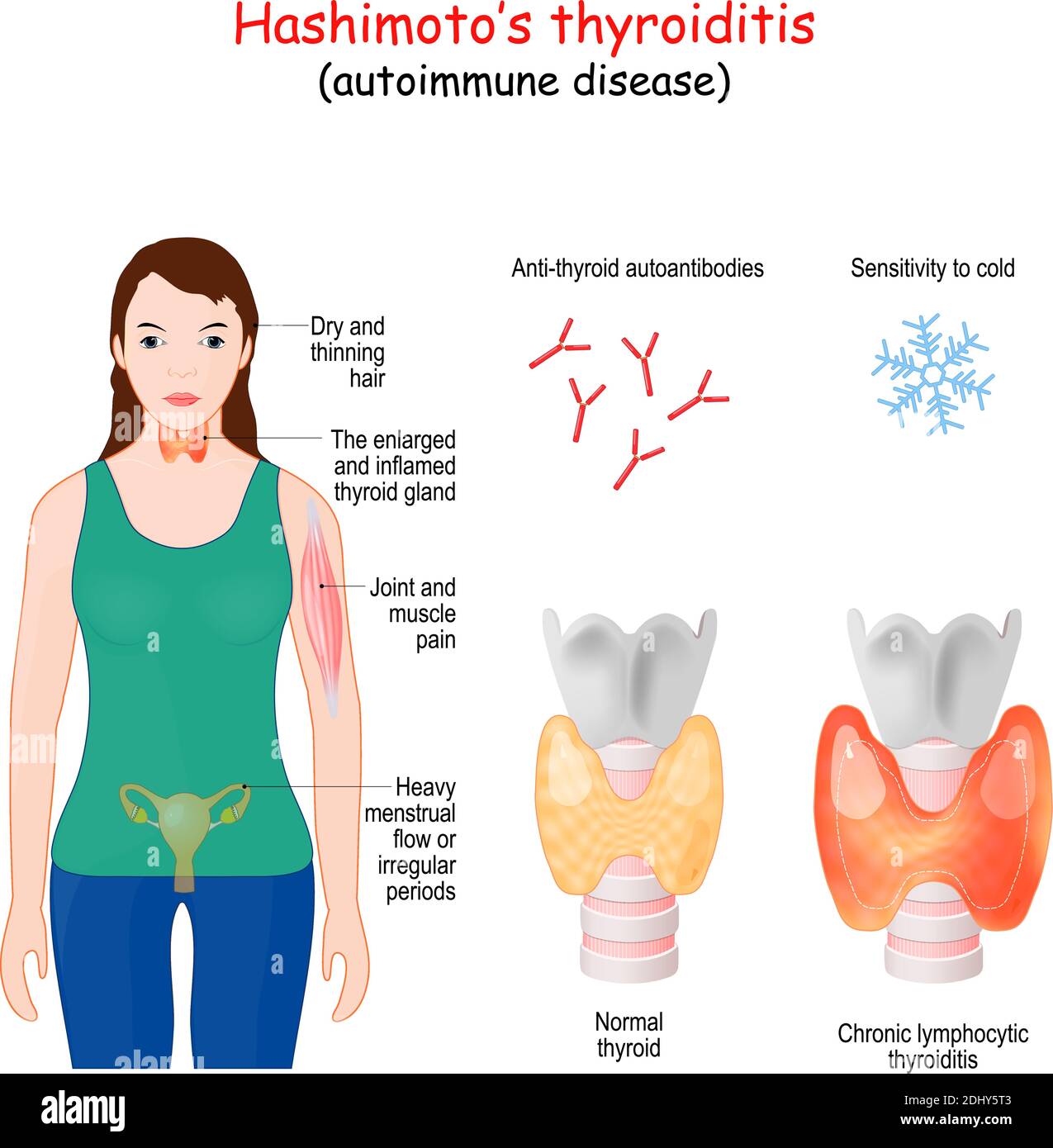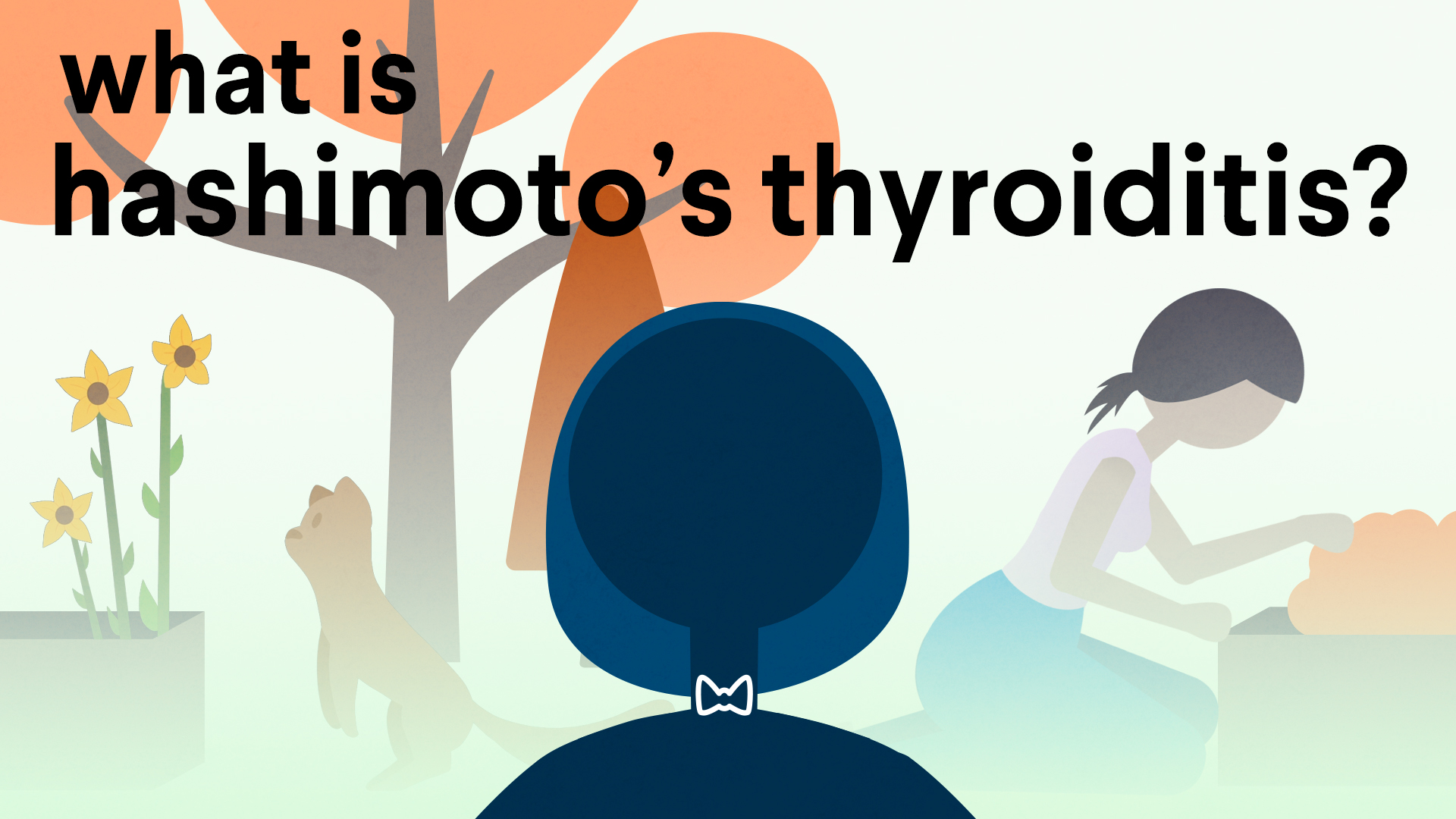Understanding Graves' And Hashimoto's Disease: Causes, Symptoms, And Treatments
Graves' and Hashimoto's disease are two of the most common autoimmune thyroid disorders affecting millions of people worldwide. These conditions, while distinct in their symptoms and effects, share a common root: the immune system mistakenly attacking the thyroid gland. Graves' disease leads to hyperthyroidism, where the thyroid produces excessive hormones, while Hashimoto's disease causes hypothyroidism, leading to insufficient hormone production. Understanding the differences and similarities between these conditions is crucial for proper diagnosis and management.
Autoimmune thyroid diseases like Graves' and Hashimoto's are more than just medical conditions; they can significantly impact a person’s quality of life. Symptoms such as fatigue, weight changes, and mood swings can disrupt daily activities and emotional well-being. For individuals seeking answers about their health, it's essential to explore these diseases in detail, understand their causes, and learn about effective treatment options.
This article dives deep into Graves' and Hashimoto's disease, providing a comprehensive guide to their symptoms, diagnosis, and management. Whether you’re dealing with one of these conditions personally or supporting a loved one, this resource aims to equip you with the knowledge needed to navigate these complex autoimmune disorders effectively.
Table of Contents
Introduction to Graves' and Hashimoto's Disease
Graves' and Hashimoto's disease are autoimmune disorders that target the thyroid gland, a small butterfly-shaped organ located at the base of the neck. The thyroid plays a critical role in regulating metabolism, energy production, and overall body function by producing hormones such as thyroxine (T4) and triiodothyronine (T3). In Graves' disease, the immune system produces antibodies that stimulate the thyroid to overproduce these hormones, leading to hyperthyroidism. Conversely, Hashimoto's disease involves the immune system attacking the thyroid, causing inflammation and eventual destruction of thyroid tissue, which results in hypothyroidism.
While both diseases affect the thyroid, their symptoms and health implications differ significantly. Graves' disease is often associated with symptoms like rapid heartbeat, weight loss, anxiety, and bulging eyes (Graves' ophthalmopathy), whereas Hashimoto's disease typically manifests as fatigue, weight gain, depression, and cold intolerance. Understanding these differences is essential for early detection and appropriate treatment.
Causes and Risk Factors
The exact cause of Graves' and Hashimoto's disease remains unclear, but researchers believe that a combination of genetic, environmental, and immunological factors contributes to their development. Autoimmune diseases occur when the immune system mistakenly identifies the body's own tissues as foreign invaders and launches an attack. In the case of these thyroid disorders, the immune system targets the thyroid gland, disrupting its normal function.
Genetic Predisposition
- Family history of autoimmune diseases increases the risk of developing Graves' or Hashimoto's disease.
- Specific genes, such as those involved in immune regulation, have been linked to these conditions.
Environmental Triggers
- Stress, infections, and exposure to certain chemicals can trigger autoimmune responses.
- Smoking has been identified as a risk factor for Graves' disease, particularly in relation to Graves' ophthalmopathy.
Gender and Age
- Women are significantly more likely to develop autoimmune thyroid diseases than men.
- Graves' disease often occurs in individuals between the ages of 20 and 40, while Hashimoto's disease is more common in middle-aged women.
Symptoms of Graves' and Hashimoto's Disease
Recognizing the symptoms of Graves' and Hashimoto's disease is crucial for early diagnosis and treatment. While both conditions affect the thyroid, their symptoms differ due to the contrasting effects on hormone production.
Symptoms of Graves' Disease
- Rapid or irregular heartbeat
- Unexplained weight loss despite increased appetite
- Anxiety, irritability, and nervousness
- Tremors in the hands and fingers
- Heat intolerance and excessive sweating
- Bulging eyes (Graves' ophthalmopathy)
Symptoms of Hashimoto's Disease
- Fatigue and sluggishness
- Unexplained weight gain
- Depression and mood swings
- Cold intolerance and dry skin
- Constipation and muscle weakness
- Thinning hair and brittle nails
Diagnosis and Testing
Diagnosing Graves' and Hashimoto's disease involves a combination of clinical evaluation, blood tests, and imaging studies. Early and accurate diagnosis is essential to prevent complications and manage symptoms effectively.
Blood Tests
- Thyroid-stimulating hormone (TSH) levels are typically low in Graves' disease and high in Hashimoto's disease.
- Free T4 and T3 levels help assess thyroid hormone production.
- Thyroid autoantibody tests, such as TSH receptor antibodies for Graves' disease and anti-thyroid peroxidase (TPO) antibodies for Hashimoto's disease, confirm autoimmune involvement.
Imaging Studies
- Ultrasound of the thyroid gland can detect enlargement or nodules.
- Radiotracer scans are used to evaluate thyroid function in Graves' disease.
Treatment Options
Treatment for Graves' and Hashimoto's disease aims to restore normal thyroid function and alleviate symptoms. The approach varies depending on the specific condition and its severity.
Treatment for Graves' Disease
- Antithyroid medications, such as methimazole, to reduce hormone production.
- Radiation therapy (radioactive iodine) to destroy overactive thyroid cells.
- Thyroidectomy, or surgical removal of the thyroid gland, in severe cases.
Treatment for Hashimoto's Disease
- Synthetic thyroid hormone replacement (levothyroxine) to compensate for low hormone levels.
- Regular monitoring of TSH levels to adjust medication dosage.
Lifestyle Changes for Managing Symptoms
While medical treatment is essential, lifestyle modifications can significantly improve the quality of life for individuals with Graves' or Hashimoto's disease. These changes focus on supporting overall health and managing symptoms.
Dietary Adjustments
- Increase intake of selenium-rich foods, such as Brazil nuts, to support thyroid health.
- Avoid excessive iodine consumption, which can worsen symptoms in both conditions.
- Adopt an anti-inflammatory diet rich in fruits, vegetables, and whole grains.
Stress Management
- Practice mindfulness techniques, such as meditation and yoga, to reduce stress.
- Ensure adequate sleep and maintain a consistent sleep schedule.
Potential Complications
Untreated or poorly managed Graves' and Hashimoto's disease can lead to serious complications that affect various aspects of health.
Complications of Graves' Disease
- Heart problems, including atrial fibrillation and heart failure.
- Bone loss and osteoporosis due to prolonged hyperthyroidism.
- Severe eye symptoms, such as vision loss, in Graves' ophthalmopathy.
Complications of Hashimoto's Disease
- Myxedema, a life-threatening condition caused by severe hypothyroidism.
- Increased risk of cardiovascular disease due to elevated cholesterol levels.
- Infertility and complications during pregnancy.
Support Systems and Resources
Living with Graves' or Hashimoto's disease can be challenging, but support systems and resources can provide valuable assistance and encouragement.
Support Groups
- Join online forums and local support groups to connect with others facing similar challenges.
- Share experiences and learn from others' coping strategies.
Educational Resources
- Access reputable websites, such as the American Thyroid Association, for up-to-date information.
- Consult healthcare professionals for personalized advice and guidance.
Latest Research and Advances
Ongoing research continues to shed light on the causes, treatments, and potential cures for Graves' and Hashimoto's disease. Recent advancements offer hope for improved management and outcomes.
Emerging Treatments
- Targeted therapies aimed at modulating the immune system to prevent thyroid damage.
- Development of novel medications to address specific symptoms, such as bulging eyes in Graves' disease.
Genetic Studies
- Identification of genetic markers associated with increased risk of autoimmune thyroid diseases.
- Potential for personalized medicine based on genetic profiles.
Conclusion and Call to Action
Graves' and Hashimoto's disease are complex autoimmune conditions that require careful management and a comprehensive understanding of their causes, symptoms, and treatments. By staying informed and proactive, individuals can take control of their health and improve their quality of life. Early diagnosis, appropriate medical care, and lifestyle adjustments are key to effectively managing these conditions.
If you or someone you know is dealing with Graves' or Hashimoto's disease, we encourage you to seek professional medical advice and explore the resources available. Share this article with others who may benefit from this information, and feel free to leave a comment below with your thoughts or questions. Together, we can raise awareness and support those affected by these challenging conditions.


Detail Author:
- Name : Ms. Calista Greenfelder Jr.
- Username : alba.nienow
- Email : annalise92@armstrong.com
- Birthdate : 1980-07-25
- Address : 386 Gabe Union North Jennifer, ID 19167-1282
- Phone : 1-260-942-5899
- Company : Fay Group
- Job : Shoe Machine Operators
- Bio : Harum vero odio harum quos. Nemo sint velit praesentium enim. Earum quidem officia est.
Socials
facebook:
- url : https://facebook.com/thielm
- username : thielm
- bio : Eum commodi velit commodi omnis tempore voluptatum omnis aspernatur.
- followers : 2926
- following : 957
twitter:
- url : https://twitter.com/melyna_real
- username : melyna_real
- bio : Error aut omnis iste quam. Nostrum excepturi accusamus facere. Vel itaque omnis adipisci maiores dicta facere.
- followers : 1004
- following : 1150
tiktok:
- url : https://tiktok.com/@melyna_thiel
- username : melyna_thiel
- bio : Omnis consequatur dolor consequatur non.
- followers : 2107
- following : 337
instagram:
- url : https://instagram.com/mthiel
- username : mthiel
- bio : Magni ut dolore consequuntur vitae atque. Quo officia iste odit quia. Dolor eaque nulla et sed.
- followers : 1948
- following : 2456